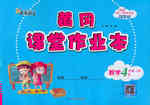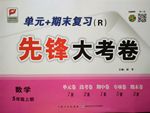题目内容
It is sometimes said that the English are polite people. This can make life difficult for foreigners. Suppose a foreign boy asks an English girl to go out with him and she says, “If I finish my work, I'll meet you in the cafe at 7 o'clock.” Is she saying “yes” or “no” to his invitation?
In grammatical terms, she is using the conditional structure. By using the conditional, speakers of English can avoid giving a “yes” or “no” answer to a question. It enables people to be diplomatic. If the girl doesn't want to go out with the boy, she won't turn up at the cafe. She will let him understand she is still working. If she wants to go out with him, but doesn't want to appear too easy to catch, she has achieved that with her reply. But in this case, as she uses the first conditional which shows probability, she is quite likely to turn up at the cafe. Being polite can make life very difficult!
The conditional is often used by people in the news-politicians, for example-who wish to avoid speaking out their ideas. This is very important if they are on their way to discuss an agreement. No one wants to give away his or her points before he or she starts. A government spokesman might say to a group of workers, “If we could pay you more, we would.” The use of the conditional here makes room for argument although the speaker is using the second conditional form, which shows improbability. So it is unlikely the workers will get their rise.
“If” is a small word, which appears often in the English language. It can show politeness, reported speech and conditionals such as the First-probability-if I can come to your party, I will; the Second-improbability-if I saw you tomorrow, I'd give you the book; and the Third-impossibility (meaning it is too late to change something that has happened)-if you have told me, I would have helped you.
注:conditional structure表示条件的句式,avoid避免,diplomatic婉转的,achieve达到,politician政客
1.The using of the conditional can make a speech ________.
[ ]
2.Which of the following is TURE according to the passage?
[ ]
A.Language used in the news should make room to argue.
B.Usually English girls are not easy to catch.
C.English people never speak out their ideas in public.
D.The word “if” can show different meanings.
3.In the passage, “If we could pay you more, we would.” probably means ________.
[ ]
A.the workers will make more money
B.the spokesman doesn't give any promise
C.the spokesman keeps his word
D.the workers' problems aren't difficult
4.This passage is mainly talking about ________.
[ ]
A.the conditional in communication
B.how to invite a girl in Britain
C.British people and their life
D.some language points in daily English

 教育世家状元卷系列答案
教育世家状元卷系列答案 黄冈课堂作业本系列答案
黄冈课堂作业本系列答案 单元加期末复习先锋大考卷系列答案
单元加期末复习先锋大考卷系列答案完形填空
Emily
and Peter have lived next door to each other as long as they can remember. When
they were ___(1)___ children, they ___(2)___ play together. They were good
friends, though they sometimes fought over toys. ___(3)___ they grew older, they
seldom(很少) played with each other. Emily preferred to be with girls and
Peter preferred to play with boys. When they were about fifteen years old, they
almost stopped ___(4)___ to each other, not because they disagreed with each
other, ___(5)___ because they belonged to different groups. Emily began to study
French and also enjoyed watching football games. Peter was only interested in
sports.
___(6)___
was football that brought Emily and Peter back together. One day, after Peter
went home, he looked into the window of Emily’s living room and saw ___(7)___
she was watching a football game on TV. He walked up and knocked at the door.
Emily was ___(8)___ to see him, but asked him to come in and they watched the
___(9)___ of the game together. They are good friends again. They ___(10)___
have different ideas about things
sometimes, but they agree with each other that football is the world’s best
game.
(1)
[ ]
|
A.a
little |
B.little |
|
C.a
few |
D.few |
(2)
[ ]
|
A.often |
B.used
to |
|
C.were used to |
D.themselves |
(3)
[ ]
|
A.When |
B.While |
|
C.So |
D.Because |
(4)
[ ]
|
A.speak |
B.spoke |
|
C.to speak |
D.speaking |
(5) [ ]
|
A.and |
B.but |
|
C.that |
D.so |
(6) [ ]
|
A.It |
B.This |
|
C.That |
D.What |
(7)
[ ]
|
A.what |
B. |
|
C.why |
D.if |
(8)
[ ]
|
A.surprise |
B.surprising |
|
C.surprised |
D.a surprise |
(9)
[ ]
|
A.other |
B.next |
|
C.later |
D.rest |
(10)
[ ]
|
A.yet |
B.also |
|
C.still |
D.too |